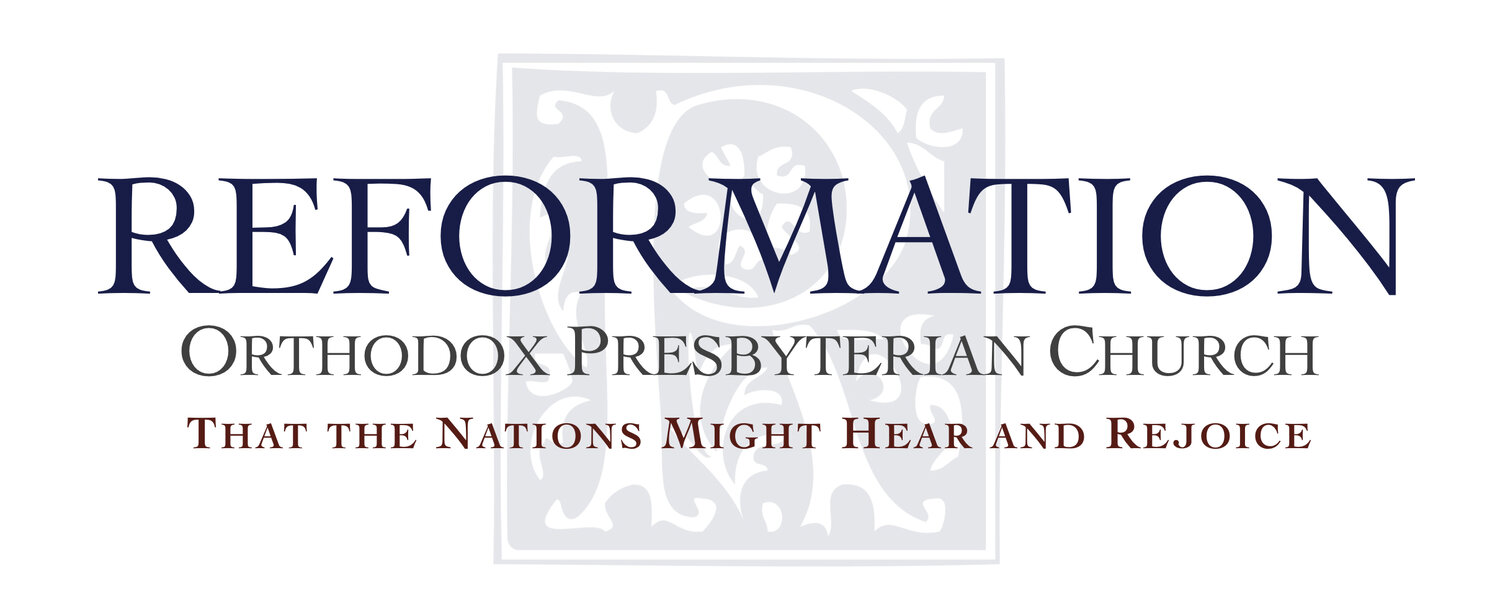Church Office
Address: 203 Rhyne Oakland Road, 28054
Email: ropcgastonia@gmail.com
Phone: 704.931.8094
Our Leadership (Church Officers)
Pastor Joseph (Joby) Fowler: jhfowlerjr@icloud.com
Elder Kelvin Monteith: kelvinmonteith@gmail.com
Elder Spencer Grigg: keithgrigg323@gmail.com
Deacon George Johnston: georgefj@twc.com
Deacon Andy Speder: aspeder@me.com
Deacon Derek Jarstfer: derek@jarstfer.com
Our Denomination - Orthodox Presbyterian Church
The Orthodox Presbyterian Church (OPC) is a Reformed Christian denomination that has its roots in the early 20th century. The OPC was founded in 1936 as a result of a separation from the mainline Presbyterian Church in the United States of America (PCUSA) due to concerns about theological liberalism and the direction of the PCUSA.
The OPC adheres to the Westminster Confession of Faith, which is a Reformed confession of faith originating in the 17th century. The church holds to the principles of the Protestant Reformation, emphasizing the sovereignty of God, the authority of Scripture, and salvation by grace alone through faith alone.
Here are some key characteristics and beliefs of the Orthodox Presbyterian Church:
1. Reformed Theology: The OPC is firmly rooted in the Reformed tradition. It upholds the sovereignty of God in all matters, including salvation, and holds to the five solas of the Reformation: Sola Scriptura (Scripture alone), Sola Gratia (grace alone), Sola Fide (faith alone), Solus Christus (Christ alone), and Soli Deo Gloria (the glory of God alone).
2. Confessional: The OPC adheres to the Westminster Standards (1649), which include the Westminster Confession of Faith, the Larger Catechism, and the Shorter Catechism. These documents serve as the church's doctrinal standards and guide its teaching and practice.
3. Worship: The OPC places a strong emphasis on the regulative principle of worship, which holds that public worship should only include elements that are prescribed or regulated by Scripture. The worship services are typically characterized by the singing of psalms and hymns, the reading and preaching of Scripture, and the administration of the sacraments (baptism and the Lord's Supper).
4. Covenant Theology: The OPC affirms the theological framework of covenant theology, which sees God's redemptive plan unfolding through various covenants throughout biblical history. The church believes in the covenant of works with Adam, the covenant of grace with believers, and the fulfillment of these covenants in Jesus Christ.
5. Church Government: The OPC follows a Presbyterian form of church government, which means that it is governed by elders (presbyters) at the local, regional (presbytery), and national (general assembly) levels. The church believes in the authority of church courts and the importance of mutual accountability among its leaders.
6. Evangelism and Missions: The OPC is committed to spreading the gospel both locally and internationally. The church supports missions and seeks to engage in evangelism and discipleship, desiring to see people come to faith in Christ and grow in their relationship with Him.
It's important to note that while the Orthodox Presbyterian Church shares similarities with other Presbyterian and Reformed denominations, each denomination has its distinctives and differences in practice and emphasis.
